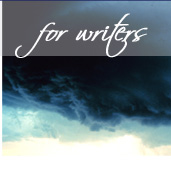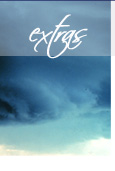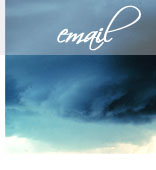


all website content © Marianna Jameson ~ all website design © Paula Roe
reprinting any part of this website without prior permission is strictly prohibited.

My Year of Writing Painlessly by Marianna Jameson
This article first appeared as a blog post on the Novelists, Inc. (NINC) blog, December 31, 2010
I was going to title this post "The Agony and The Ecstasy of Writing." Okay, so that title might have seemed just a bit melodramatic. When things are going well.
When they are not, that title is bang-on accurate, heavy on the agony. Every author goes through some form of Hell during every book, whether it's staring at that first blank page, writing through a desperately sagging middle that has no end in sight, bolstering a plot that can't support its own weight, or wrapping it up in a way that leaves a feeling of accomplishment instead of a gaping hole where you think your talent used to reside. Even if you've come through the writing part unscathed, there will be revisions that leave you reeling. Copy-edits that send you scurrying for your blood-pressure cuff. Cover art that makes you want to cry. There's always something out there waiting, just waiting somewhere in drooling, lusty anticipation to step on your rapture, steal your magic, blow away the fairy dust.
If there is any author who has published a book and has not gone through any-or all-of the above, I want to hear from you. I want to know your secret.
For the rest of us, especially those new to the game, I wish there were a secret handshake I could tell you about, but I'm still searching for it myself. What I can tell you is that every writer goes through self-doubt, sometimes for months on end and at least once a year. And even when you think your stuff is good, there is always someone out there to tell you you're wrong. The only thing that I have found that makes me feel better about my work is to go over it and over it until I think it shines.
Here is my regimen for scrubbing my books before they go out the door:
First, I just write the damned book. Write it, tweaking things as I go, but always with the goal of hitting that daily page count and finally typing The End.
Then I edit from start to finish. Lather, rinse, repeat. At least twice. I give myself a day between takes.
When I'm happy enough with it (Note: not necessarily happy with it, but happy enough), I go back and read it the way a reviewer who dislikes me would, or the way a creative writing teacher might. This is a different sort of read than an editorial read. I don't hit myself so hard that a job at Wendy's starts to look like a better alternative to writing, but I take a critical look at every element individually as it comes up: the story line, the plot points, the characters, etc. I really look hard at what motivates my characters from line to line, movement to movement, at every twist that pushes the plot forward or coaxes the story forward. Is it natural? Is it believable? If I hit a "no", I stop and mess with it until I get to "yes", then I keep going. (Of course, reviewers don't look at any book this carefully. I'm just sucking up to them by calling this my Reviewer's Read.)
What is that messing I do? Well, when I do come upon something in a character that doesn't feel right, I stop and interview that character. It's amazing what I can learn about the characters and their motivations when I ask questions and "they" give me answers in a rapid-fire, stream-of-consciousness way. If I stop to let "them" think before answering, I lose the magic of the exercise. And I ask questions that don't necessarily have anything to do with the story I'm writing, but have everything to do with their character, their past: "Did you go to prom? With whom? Did you have fun? When did you learn to drive? What was your first car? Who was your favorite teacher? What were your parents like? Did you wear braces? When did you lose your virginity? Where?" etc.
I know it sounds mildly insane, but you cannot believe the wealth of information this exercise can dredge up. It has worked with my villains and my heroes/heroines and much of what comes out of these "interviews" ends up working its way into the book. This is something that I find only works for me after the first draft is done and scrubbed a bit, because by then I "know" the characters. If I try to push like this too early in the process, it's like trying to make small talk with a stranger. Who doesn't want to talk to you.
At this point, pragmatism starts to take over, so I do a search-and-replace to highlight in hot pink every instance of "-ly", "is", "was", "were" and "there". (And "shrug" because my characters seem to do a lot of shrugging in early drafts.) My manuscripts typically end up with a bad case of the measles during this part of the regimen. So I try to get rid of most of the adverbs and passive/boring constructions and that makes the writing better. It never fails to amaze me how rewriting a few words or even deleting a word can make a line, and therefore a moment or a scene, so much stronger.
Then I zero in on adjectives and ask myself if they really describe the setting (or whatever) the exact way I see it in my head. This step can take a while, but it's energizing because it really gets that projector screen in my head operating in high definition.
An element of the internal, authorial revision process (as opposed to the editor's process) that makes me slightly nauseated to think about has to do with critique partners. I tried it once and, as I decided after riding my first roller-coaster, this is not something I need ever do again. Bad experience. Other writers (and roller-coaster riders) have had better luck. But that one experience was valuable. It taught me that just because someone can write, it doesn't mean they can critique. Frankly, I think critiquing well takes a lot of experience. (And that's not a suck-up to reviewers, by the way.)
I realized that before I let people read my early, still-in-process stuff and tell me what they think of it, I have to be sure that I respect their judgment. I know that sounds kind of arrogant, but when I want a critique, I want a good one. I want substance, I want muscle-not some bland, pointless, imitation-vanilla custard dreck about how much they love my characters, but I use too many commas. (Yes, that happened.) I do have two writer-friends of long standing who are published in genres different from mine that I turn to when I need an opinion on a scene or a plot element. They function less as story critics than as story surgeons. They can be objective, harsh, blunt, but they see things with an expert's eye and I love their input. One is fabulous with structure and the other is a genius when it comes to the big picture, and both are brilliant at suggesting just the exact right detail to bring a scene, a plot, a character to life.
I don't use them for every book and I don't usually use both of them on any one book. And if I ever thought I needed a beta-reader with a different perspective, new insight, or an alternative approach, I wouldn't hesitate to hire freelance editor.
I suppose one might be wondering where in this discussion is the feel-good stuff, the warm fuzzies I enjoy to keep the Muse alive and humming. Well, a good Sauvignon Blanc tends to keep Musey-goosey happy, and having little affirmations and positive gewgaws around me in my office help my attitude, but none of those can do much for a manuscript. (Even the SauvBlanc. Trust me.) That's why I rely instead on these practical activities that provide me with "milestones" or at least things I can cross off a list to assure myself that I'm doing everything I can to make my manuscript the best I can make it. And, despite the title of this piece, I try always to remember that we are much, much, much harder on ourselves than anyone else would dare to be.
And just how does this tie in to the upbeat and happy New Year message I should be offering, given that I'm blogging on this most hopeful and forward-looking of days? Well, I've committed to writing three books this upcoming year, one in a genre that I haven't tried before. And I'm going to try to do it
make that I'm going to do it without the agony. Maybe without the ecstasy. (Maybe even without the SauvBlanc, but we'll have to see about that...)
My Year of Writing Painlessly is about to begin. I'll keep you posted on how it goes. In the meantime, I wish you and all writers everywhere a painless, productive, prolific, and profitable New Year!






